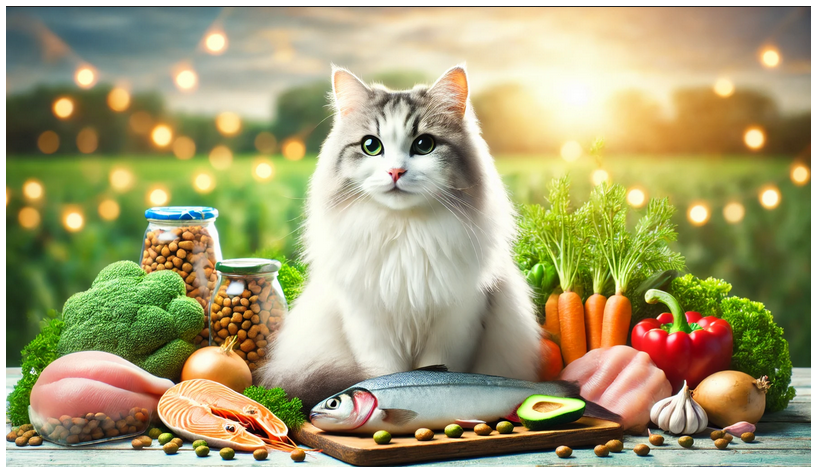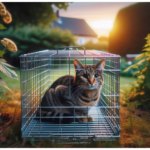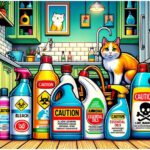Good morning, cat lovers! Today, we’re diving into the essential topic of protein in your cat’s diet. When it comes to feeding our feline friends, one of the most crucial aspects to consider is the quality of protein in their diet. However, navigating the maze of cat food options can be challenging, especially when trying to balance cost and quality. This comprehensive guide will help you understand the essentials about protein in cat food, and how to make the best choices without breaking the bank.
Why Protein is Crucial for Cats
Protein is a fundamental nutrient for cats, vital for their overall health and well-being. Cats are obligate carnivores, meaning their bodies are designed to get nutrients primarily from animal sources. Protein provides essential amino acids, the building blocks for:
- Muscle development and repair: Cats need protein to maintain and build muscle tissue.
- Enzyme and hormone production: Proteins are crucial for synthesizing enzymes and hormones that regulate various bodily functions.
- Immune system support: Adequate protein intake supports a healthy immune system, helping cats fend off diseases and infections.
- Energy: While carbohydrates can provide energy, cats primarily rely on protein and fat for their energy needs.
Minimum Protein Requirements
The Association of American Feed Control Officials (AAFCO) provides guidelines on the minimum protein requirements for cats:
- Kittens: At least 30% of their diet should be protein on a dry matter basis.
- Adult cats: At least 26% of their diet should be protein on a dry matter basis.
These percentages ensure that cats receive the necessary amino acids for their physiological needs.
Can Cats Have Too Much Protein?
While cats thrive on high-protein diets, it’s essential to balance their overall nutrition. However, excessive protein in cat food can strain the kidneys, particularly in cats with pre-existing kidney conditions. However, healthy cats can efficiently process higher protein levels without adverse effects.
Protein In Cat Food: Does the Source Matter?
The source of protein in cat food is critical for cats. Animal-based proteins are superior for several reasons:
- Amino Acid Profile: Animal proteins provide a complete amino acid profile, including taurine, an essential amino acid that cats cannot synthesize in sufficient quantities. Taurine deficiency can lead to serious health issues like blindness and heart problems.
- Digestibility: Cats digest animal proteins more efficiently than plant proteins, ensuring they get the maximum nutritional benefit.
Plant proteins, while not harmful, are less suitable as the primary protein source due to their incomplete amino acid profile and lower digestibility.
The Quality of Animal Protein In Cat Food
Not all animal proteins are created equal. The quality of the protein source impacts its nutritional value:
- Named Meat Sources: High-quality cat foods list specific meat sources like chicken, beef, or fish as the primary ingredients.
- By-products and Meals: While some by-products can be nutritious, it’s essential to ensure they are from reputable sources. Named meat meals (e.g., chicken meal) can also be high-quality protein sources if properly processed.
- Artificial Additives: Avoid foods with excessive artificial additives, as these can compromise the quality of the protein.
Effects of Additives and Thickeners on Protein Availability
Additives and thickeners are commonly used in cat foods to enhance texture, flavor, and shelf life. However, some can impact protein availability:
- Fillers: Ingredients like corn and wheat gluten are often used as fillers but offer limited nutritional value and can reduce the overall protein quality.
- Gums and Carrageenan: Thickeners like guar gum, xanthan gum, and carrageenan can affect digestion and nutrient absorption. While generally safe in small amounts, excessive use can lead to gastrointestinal issues.
- Preservatives: Natural preservatives like mixed tocopherols (vitamin E) are preferable to artificial ones like BHA and BHT, which have potential health risks.
The Cost-Quality Dilemma
High-quality protein sources are generally more expensive, but they offer significant benefits for your cat’s health. Here’s a closer look at how cost and quality intersect:
- Premium Brands:
- Pros: Often use high-quality, named animal proteins and fewer fillers. Better digestibility and nutrient absorption. May include added health benefits like probiotics and omega-3 fatty acids.
- Cons: Higher cost, which can be a barrier for some pet owners.
- Mid-Range Brands:
- Pros: Balance between quality and cost. May use some named animal proteins mixed with plant proteins. Fewer artificial additives than budget brands.
- Cons: Still more expensive than budget options, and quality can vary widely.
- Budget Brands:
- Pros: More affordable, widely available.
- Cons: Often use lower-quality protein sources, including unnamed by-products and plant proteins. Higher use of fillers, artificial additives, and preservatives, which can affect long-term health.
Making Smart Choices
Feeding your cat high-quality protein in cat food doesn’t have to be prohibitively expensive. Here are some tips to ensure your cat gets the best nutrition within your budget:
- Read Labels Carefully:
- Prioritize products with named animal proteins as the first ingredient. Avoid foods with vague terms like “meat by-products.”
- Avoid Fillers:
- Look for foods with minimal fillers like corn, wheat, and soy. These ingredients offer little nutritional value and can dilute the quality of protein.
- Check for Additives:
- Opt for foods with natural preservatives (e.g., mixed tocopherols) instead of artificial ones (e.g., BHA, BHT).
- Consider Wet and Dry Foods:
- Combining high-quality wet food with dry food can provide a balanced diet and help manage costs. Wet food often has higher protein content and fewer fillers.
- Buy in Bulk:
- Purchasing larger quantities or subscribing to delivery services can save money in the long run.
- Consult Your Vet:
- Your veterinarian can recommend affordable, high-quality brands and specific formulations suited to your cat’s health needs.
Choosing the Right Protein for Your Cat
To ensure your cat gets the best possible nutrition, consider the following tips:
- Read Labels: Look for cat foods that list high-quality animal proteins as the first ingredient.
- Avoid Excessive Additives: Opt for products with minimal artificial additives, fillers, and thickeners.
- Consult Your Vet: If you have concerns about your cat’s protein intake or overall diet, consult your veterinarian for personalized advice. This is especially important if your cat has any known health challenges.
By understanding the importance of protein in your cat’s diet and making informed choices, you can help your feline friend lead a healthy and active life. Remember, a well-balanced diet rich in high-quality animal protein is the key to your cat’s vitality.
I hope this guide helps you make the best dietary choices for your cat! If you have any questions or want to share your experiences, feel free to leave a comment.






